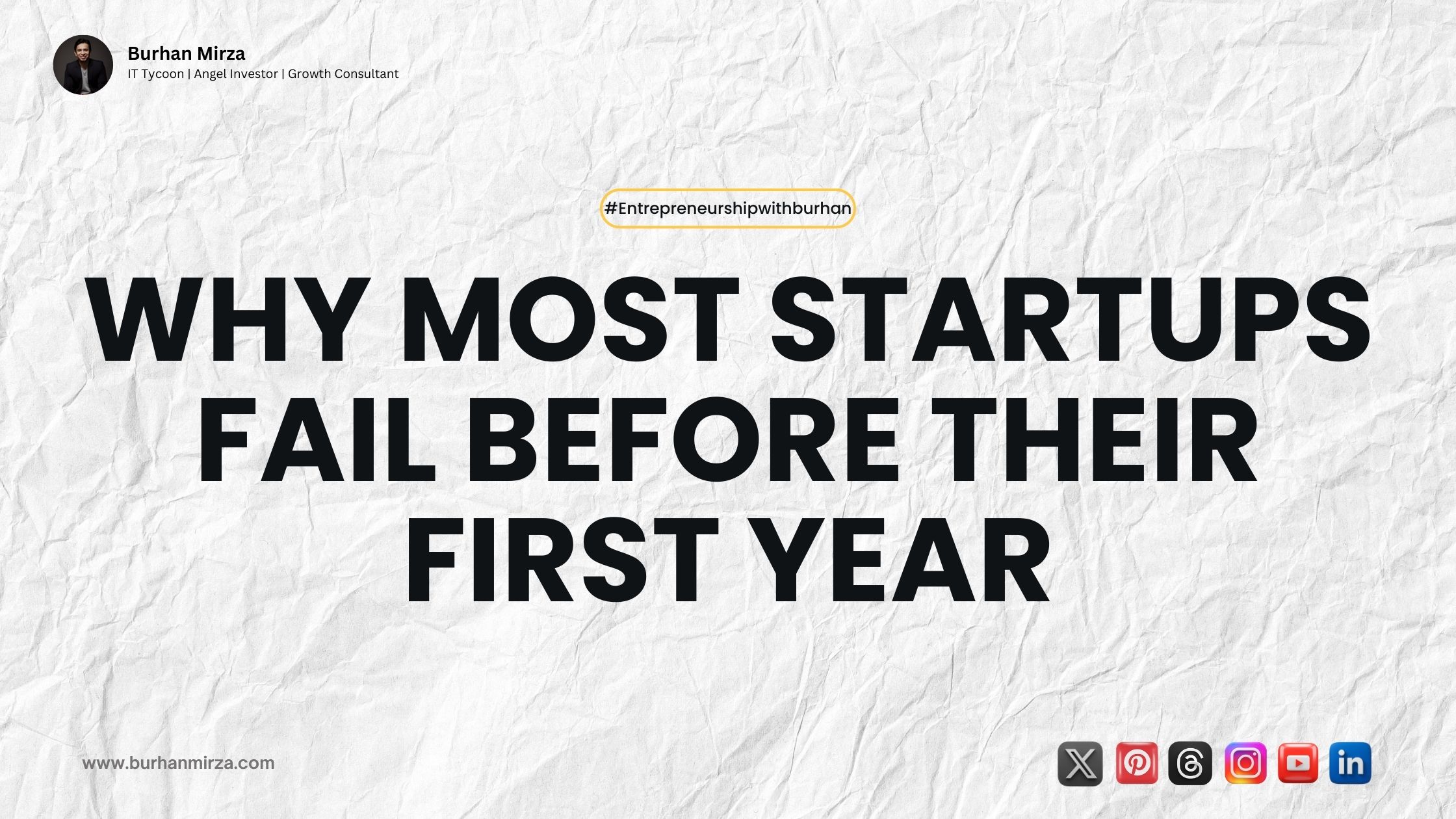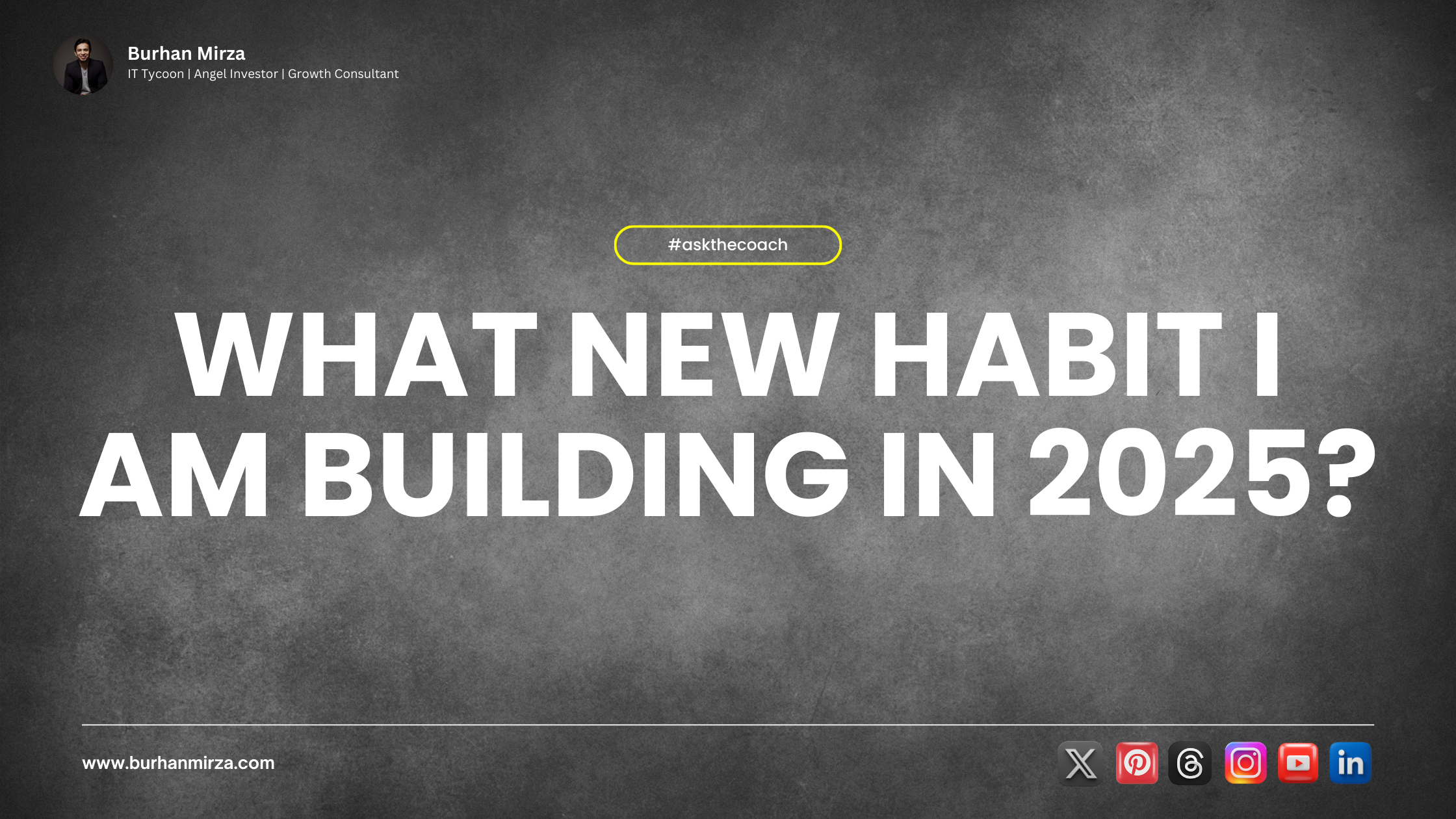 Blogs
Blogs
Why Most Startups Fail Before Their First Year

It’s a harsh stat, but it’s real; more than 90% of startups fail, and most of them don’t even make it past their first year. Muhammad Burhan Mirza has seen dozens of ventures become wildly successful, and even more flop before even making their first grand. According to my humble observation, most of those early-stage startups didn’t fail because of bad luck. They failed because of bad strategy, poor execution, and an unwillingness to face the truth early.
Let me break down why this happens and what you, as a founder, need to understand if you want to beat the odds.
1. Building a Solution Without a Real Problem
This is mistake number one, and it’s lethal. Founders get so fixated on their idea, their “big vision,” that they forget to ask one basic question: Does anyone actually need this?
I’ve seen beautifully designed apps, fancy dashboards, and smart tech that seemed appealing but no actual user need. If your product doesn’t solve a painful, frequent, or urgent problem, it’s a nice-to-have at best. And startups don’t survive on “nice-to-haves.”
Fix it: Talk to real people. Validate demand before building. If no one is willing to pay (or even use it for free), scrap it.
2. Trying to Scale Too Soon
Everyone wants to go “big” from day one. They want viral marketing, international clients, and massive scale. But here’s the truth: if you can’t serve 10 customers properly, you’re not ready for 100. Scaling too early drains cash, stretches resources, and often exposes the weaknesses in your foundation.
Fix it: Nail product-market fit. Keep operations tight. Grow with control, not ego.
3. No Real Business Model
Startups die when they don’t make money or have no plan to. You can have all the downloads, likes, and followers in the world. But if your revenue model is weak, your runway will run out. I see founders confusing growth with profitability all the time. One doesn’t guarantee the other.
Fix it: Have a clear path to revenue from day one. Validate if people will pay. If your model only works “once we get a million users,” rethink it.
4. Founders Burn Out or Fall Out
The pressure, the long nights, the uncertainty, it’s not for the faint-hearted. Many startups fail not because of external market forces, but because the founding team collapses. One partner loses interest. Another disagrees with the vision. Or worse, they stop communicating.
Fix it: Pick your co-founders wisely. Align values early. Set boundaries. Have hard conversations up front.
5. No Customer Feedback Loop
Startups that don’t listen to their users are essentially flying blind. You can’t fix what you don’t measure. And you can’t grow what you don’t understand. I’ve seen startups fail simply because they assumed what customers wanted rather than actually asking.
Fix it: Build in public. Test. Iterate. Use feedback as your North Star. Let customers shape the product, not your ego.
6. Ignoring the Basics: Legal, Finance, Operations
Yes, yes, the legalities are no fun, but they’re highly critical. I’ve seen promising startups implode because they ignored compliance, didn’t register properly, mismanaged funds, or mixed personal and business accounts.
Fix it: Get your structure right. Use proper contracts. Track your expenses. Hire a basic accountant or financial advisor if you must. The small stuff kills silently.
7. Bad Marketing and Positioning
You might have the best product in the world, but if no one knows about it, it won’t sell. Too many startups assume “build it and they will come.” They won’t.
Fix it: Know your target audience. Speak their language. Focus on one channel, master it, then expand. Don’t waste time doing 10 things badly.
Final Thought
Startups fail because people don’t want to do the boring stuff. The real stuff. They chase trends instead of truth. But if you slow down, listen to your market, build lean, and treat your startup like a real business from day one: you’re already ahead of most.
The first year is a test. It’s meant to be hard. But if you’re smart, honest, and willing to adapt fast, you can survive it and even thrive. You just have to play the long game right from the start.
 Muhammad Burhan Mirza
Muhammad Burhan Mirza My Story
My Story Events
Events Social Highlights
Social Highlights Books
Books Blog
Blog Press Kit
Press Kit  Contributions
Contributions 

